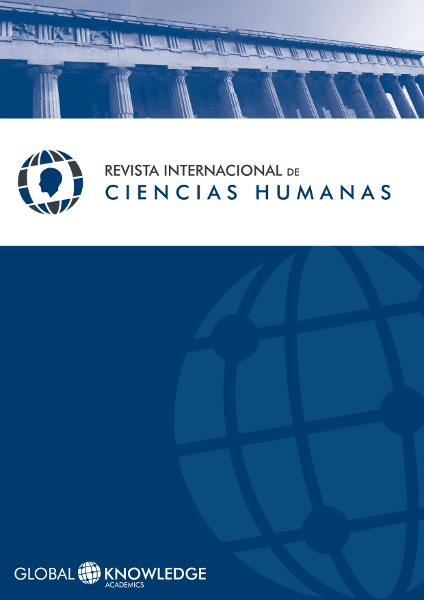The Teaching Function in the Knowdge Society
DOI:
https://doi.org/10.37467/gka-revhuman.v3.719Keywords:
Education, Teaching Professional Knowledge, Meanings of Change, Teacher’s FunctionAbstract
In the last years the world started to live together with a process of expressive social, cultural and economical changes. The new century began mythicized as the new era, where the progresses are so fast that the future becomes, in a certain way, unknown. The world faces a new way of seeing the time, the power, the work, the communication, the information, the institutions and especially, the education and the teaching, the focus of the reflection in this paper. This approach proposes the observation of the complex situation of education in schools nowadays and the need for changes in the formation of the teacher. According to this proposal, are presented here, the results of the investigation developed considering the analytic possibilities opened by SACRISTÁN. This work tries to disentangle the teacher’s function from the demands imposed nowadays, in a contribution to the redirection of prescriptive proposals for changes and specially teacher training.
References
Assmann, Hugo. (2006). A metamorfose do aprender na sociedade da informação. Retirado em 02 junho de 2011, de http://www.scielo.com.br.
Borges, Mônica Erichsen Nassif. (1995). “ A informação como recurso gerencial das organizações na sociedade do conhecimento”. Ciência da informação. Belo Horizonte 24( 2).
Ferrès, Joan (1996). Vídeo e educação. 2. ed. Porto Alegre: Artes Médicas.
Flecha, Ramón; Tortajada, Iolanda. (2000). “ Desafios e saídas educativas na entrada do século”. In: A educação no século XXI, Imbernón, Francisco (Org.), Cap. 1, p. 21-36. São Paulo: Artes Médicas.
Imbernón, Francisco. (2000). “ Amplitude e profundidade do olhar: a educação ontem, hoje e amanhã” . Em: A educação no século XXI, Cap. 1, p. 77-94. São Paulo: Artes Médicas.
Leite, Lígia Silva. (1996). A educação a distância capacitando professores: em busca de novos espaços para a aprendizagem. Retirado em 22 de junho de 2011, de http://www.intelecto.net/ead-textos/ligiacris.htm.
Modernell, Álvaro Borba. (1999). “ Novos Paradigmas Profissionais no Ensino Superior”. Revista Acadêmica. Brasília, UNEB, p.75-84, jul./ dez.
Monken, Eliane Maria Freitas. (1998). Limites e possibilidades de inserção da pedagogia de projetos no Ensino Superior. Brasília, 35 p. Monografia (Especialização em avaliação Educacional). Programa de Pós-Graduação em Avaliação Educacional, através do ensino a distância, UnB.
Rodrigues, Rosângela. (1999). Modelo de avaliação para cursos no ensino a distância. Retirado em 15 junho de 2011, de http://www.eps.ufc.br/dises/99/roser/eapl-5.html. Roldão.
Maria do Céu. (2005). “ Profissionalidade docente em análise – especificidade dos ensinos superior e não superior” . Revista NUANCES, Universidade do Estado de São Paulo, ano XI, n. 13, p. 108-126, jan./dez.
Sacristán, José Gimeno. (2000). “ A educação que temos, a educação que queremos” . Em: A educação no século XXI, Imbernón, Francisco (Org.), Cap. 1, p. 37-61. São Paulo: Artes Médicas.
Sarmento, Diva Chaves; Ferreira, Eleutéria Maria Machado. (1999). “ Construindo o caminho novo” . Em: Escola Sagarana: Educação para a vida com dignidade e esperança. Secretaria de Estado da Educação de Minas Gerais (Org.), Cap. 3, p. 39-47. Belo Horizonte: SEEMG.
Squissardi, Valdemar. (2001). Rumo à universidade competitiva. Em: 3° Encontro dos Professores do Ensino Superior da Rede Privada. Belo Horizonte: 02 e 03 nov.
Teixeira, Inês Castro. (1996). Os professores como sujeitos socioculturais. Em: Múltiplos olhares sobre educação e cultura, Dayrel , Juarez (Org.), p. 179-195. Belo Horizonte: UFMG.
Valente, José Armando (Org.). (1999). O computador na sociedade do conhecimento. São Paulo: NIED.
Vasconcellos, Celso dos Santos. (1998). Processo de mudança da prática educacional. São Paulo: Libertad.
Downloads
Published
How to Cite
Issue
Section
License
Those authors who publish in this journal accept the following terms:
- Authors will keep the moral right of the work and they will transfer the commercial rights.
- After 1 year from publication, the work shall thereafter be open access online on our website, but will retain copyright.
- In the event that the authors wish to assign an Creative Commons (CC) license, they may request it by writing to publishing@eagora.org









